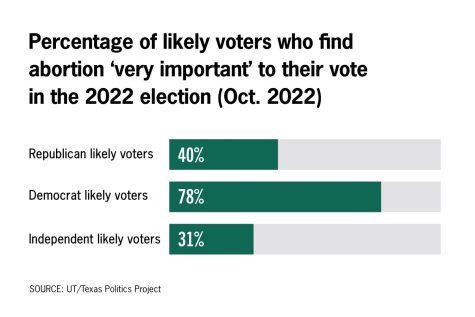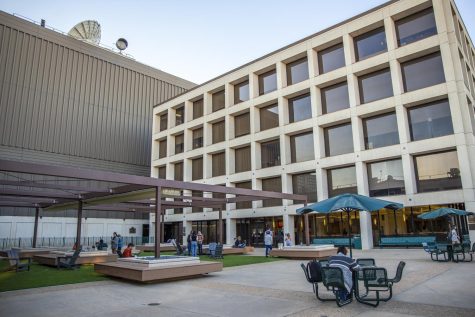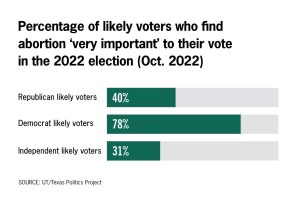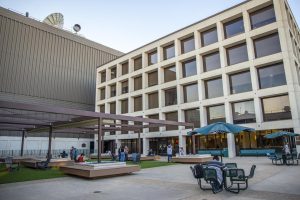Student Government presents six ways UT can be more inclusive for LGBTQ+ students
October 28, 2022
Student leaders presented six immediate recommendations for UT to improve inclusivity for LGBTQ+ staff and students on Wednesday, eight months after releasing a report addressing the LGBTQ+ state of affairs.
The full report, based on data from a survey with 2,024 student responses, includes 48 long-term recommendations to make the University a more inclusive environment. However, the leaders presented six immediate ways to create change: add a full-time outreach staff position to the Gender and Sexuality Center; create a gender-inclusive bathroom in the University Teaching Center; create a gender-inclusive locker room in Gregory Gym; support the departmentalization of Women’s and Gender Studies; consider completion of the GSC’s Allies in Action training in the tenure process; and guarantee that UTPD does not receive an increase in funding.
Report co-author Leland Murphy said the University has not officially responded to their recommendations, so continued pressure on the administration is necessary to ensure they are met.
“There’s so much more push to be done, because this was just presented officially to UT in the spring,” Student Government President Murphy said. “Now is that crucial period where we start bringing these things back up.”
On average, LGBTQ+ students feel less safe than straight and cisgender students, the report found. When asked to rank how safe they feel on campus out of ten, straight and cisgender students on average responded 7.53, compared to 7.22 from LGBTQ+ students, 7.06 from LGBTQ+ and Black, Indigenous and students of color, 6.9 from LGBTQ+ and low-income students, 6.63 from LGBTQ+ and disabled students and 6.22 from transgender students.
Report co-author Emily Jin said these results highlight the intersectionality of University students and their relationships with on-campus police and security. Murphy said these results indicate that more police presence at the University would not increase LGBTQ+ students’ feelings of safety.
“Often people immediately go to policing, but safety really looks like so many other different (things). Really what our report was also trying to find was, ‘How can UT make campus safer (in a way) that doesn’t always rely on just punitive policing?’” Murphy said.
Liz Cortes, the co-director for the Queer and Trans Student Alliance, said they thought the recommendation to consider allyship training during the tenure process is one of the most important things the University can do to improve allyship.
“If you’re gonna stay in the campus for a long time, I think it’s just important that you understand that diversity and understand how to be respectful towards your students,” government junior Cortes said.
Cortes said they would like the Gender and Sexuality Center to receive more recognition and funding from the University for outreach.
“QTSA works with (the GSC) a lot, and we notice how busy they can be,” Cortes said. “More people are identifying as queer and being open about that, and we really need to make sure that resources are available.”
Murphy said as the University grows, the need for space for LGBTQ+ students increases.
“Staff is very limited,” Murphy said. “They only have three full-time staff, one shared administrator, two graduate assistants, four student staff and then one to five student interns, which kind of varies. This is for a center that is supposed to serve all of campus.”









